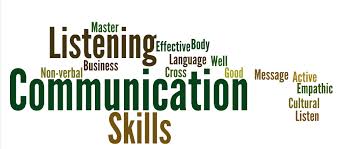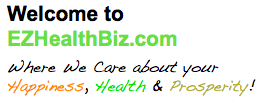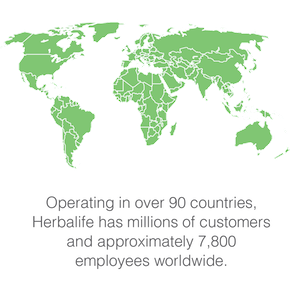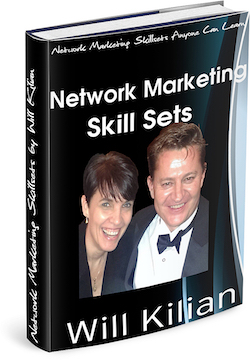
You know how everyone likes to talk and no one really wants to listen? Well, most people never learned how to become a better listener; their listening skills are non-existent.
The importance of the art of listening cannot be over stated. It is the cornerstone of every meaningful relationship.
You know the phrase: “Nobody cares how much you know, until they know how much you care?” Well, this stems from the deep need that all of us have to be understood. But in today’s society, nobody seems to be listening. Does the following conversation sound familiar?
“How was school honey?”
“Fine!”
“Really? You do not sound fine?”
“I hate school!”
“Why?
“It’s stupid!”
“What makes you say that?”
(Oh boy, here goes the probing again! I wish I could just talk her about what’s really bothering me.) “It just is, okay!”
“Well honey, with an attitude like that, you won’t get very far in life. When I was your age…”
(Blah-blah-blah. She doesn’t get it. It’s impossible to have a conversation with her. I wish I could just talk to her about what really matters. She clearly won’t understand!) “Mom! I’m really not in the mood for another lecture. I’m tired and I don’t want to talk about it! Okay?”
“No need to bite my head off! If you had a bad day at school, you can’t just take it out on us!”
(blah- blah-blah…great, another lesson on respect.)
You see, most of us listen with our own perspective in mind; our own frame of reference. This is called autobiographical listening.
We listen, if we listen, with the purpose of reacting from our own frame of reference. These responses are usually judgmental and evaluative, advisory from your own point of view, probing for information you think is important or interpreting from what you heard as you see it.
None of these are productive and none of these listening responses have a positive effect on the relationship.
Relationships are key. Our relationships with the people around us are the most important thing in life. And the ability to truly, deeply listen, so that the other person feels fully understood, is the key to building these relationships.
Our own desire to be understood is one of the most powerful needs (after the our need for self-preservation) that we have.
Take air for example: if you were deprived of air right now, what would happen to your interest in this article? That’s right. You will lose complete and utter interest in it.
Your primary concern would be to get air and until you get air, noting else would matter to you.
The same goes for your need to be fully understood. Until that need is met, nothing else matters.
Nothing I say or do can get you to open up to me, until that need is first met.
All throughout our formal schooling we are taught to read, write and speak, but we were never taught to truly listen. Yet the ability to listen in such a way that the person you are listening to feels completely understood is the most important component of effective communication.
To know to become a better listener and improve your listening skills, you must learn to identify the different styles of listening.
There are five stages of listening when someone else is talking to you. See which ones you practice most.
- Ignoring the person.
- Pretend you are listening to him/her.
- Selective listening; hearing only what you want to hear.
- Attentive listening – really listening and either confirming or disputing what you hear.
- Emphatic listening – trying your best to see it as the other person sees it by listening with your eyes for the emotions and feelings; by reflecting genuine empathy until the other person feels that you understand.
Only by way of emphatic listening are we able to “supply air” to the person we are listening to.
This enables the person to “breathe more easily” and open up more. The more we simply restate (with empathy) the feelings and emotions about what is being communicated to us so that the person feels you truly “get it” as if you are standing in his/her shoes, the more “air we let in” and the more comfortable the person feels to share a bit deeper and deeper, until you get to the real root of what is bothering the person or what his/her real desires are deep down.
Let’s revisit the conversation between mother and daughter and see what difference it makes when the mom tries to listen with emphathy.
“How was school honey?”
“Fine!”
“Correct me if I’m wrong, but I sense that you did not have a good day at school.”
“No, I haven’t.”
“I can see that.”
“It’s just so unfair!”
“You don’t like it when things are unfair, do you?”
“No I don’t. My English teacher keeps on picking on me in class.”
“You really dislike it when someone picks on you.”
(Finally she listens to me.) “You know it mom. He called me out for talking in class, but I was only trying to quiet my friends down so that I can listen to the teacher.”
“You just wanted to listen to the teacher and he thought you were the one talking over him.”
“Yes. English is my favorite subject and I really want to do well in it. Now he thinks I do not like his classes.”
“It’s important to you that your teacher knows that you like his classes, right?”
“Yes. He must evaluate each one of us and he is ultimately the one deciding what grade we get.”
“And you feel that he now thinks less of you.”
(I have the best mom ever!) “Yes. What do you think I can do about it mom?”
“Well, I have some ideas. Do you want to hear them?”
Do you spot the difference in outcome in the two conversations? In the first, the mom was listening from her own frame of reference. In the latter, the mom just empathetically reflected her daughters own feelings and emotions back to her in an attempt to see it from her daughter’s perspective.
That allowed her daughter to open up until eventually the mom got to the root of the real problem and the daughter felt fully understood and ready to ask her mom for advice.
Now the daughter is ready to receive the advice, because she feels fully understood. She feels that her mom has a full understanding of her dilemma and now she trusts her mum’s opinion on how to deal with it.
It’s like going to the doctor when you don’t feel well. Ultimately you do want the doctor to prescribe something for you to fix you up, but not before he has had an opportunity to diagnose what is wrong.
If you walked into your doctor’s room and he asks you what is wrong and you say, “ah, I don’t feel to well” and he then proceeds to immediately prescribe some sort of antibiotic to you, you are not going to feel to confident about taking that medicine, are you?
You simply will have no confidence in this doctor’s diagnosis and hence you will also have no confidence in his prescription.
The same goes with effective communication. Until you feel fully understood, you simply won’t be receptive to any advice, no matter how good the advice or how well intended it is.
We all need to constantly practice our listening skills by getting out of our own heads and into the hearts of the people we listen to.
If you enjoyed this article on How to become a better listener and improve your listening skills, feel free to share it. Your comments below are also most welcome.
~ Will Kilian
About the author:
Willem & Suné Kilian
Global Expansion Team
Herbalife ID: 46-024370
Email: wjkilian@gmail.com
Based in Australia.
Willem Kilian: Husband, Father, Lawyer, Entrepreneur, MLM/Network Marketing Trainer and Self-Published Author.
“My wife and I are independent Herbalife distributors since March 1996. We both got great results on the products. She lost 10kg within the first few months and I lost 36kg in 6 months. We both maintain our new healthy weight ever since. (Compulsory legal disclaimer: These results are not typical. Individual results will vary.) Although we are both professionals – she being a medical doctor and me being a lawyer, we recommend the Herbalife products to everyone who wants to improve their health and well-being. We are a typical Herbalife family. Our kids love the products as much as we do. The Herbalife business opportunity is arguably one of the best in the network marketing industry, paying back 73% of the gross turnover to its distributors via retail profits, wholesale profits, royalties and bonuses. The combination of these amazing products with this solid compensation plan, makes Herbalife in our eyes the best network marketing opportunity out there.
If you are not yet a Herbalife distributor/member, but are interested to know more, you can click on the Apply Online (smiling lady picture) on the right. It will take you to a new page that provide you with more information.
However, if you are ready, willing and able to join us right now, just follow the 5 easy steps below.
How to Join our Herbalife Team
You can Join Herbalife in a few minutes with 5 easy steps, sign-up using the online application:
- Click on the following link https://us.onlinecontract.myherbalife.com
- For “Sponsor’s Herbalife ID Number” enter “46024370“
- For “First 3 Letters of Sponsor’s Last Name” enter “KIL“
- For “Purchased an International Business Pack (IBP) from your Sponsor?” Select “No”
- Click “Next” and follow the instructions to complete your Herbalife membership application.
You will have access to place your discounted orders directly from Herbalife within minutes and receive the International Business Pack (IBP) which includes detailed instructions on being a distributor along with some samples. Your starting discount is 25%!
If your country is not on the list to join online, just send us an email at either wjkilian@gmail.com or wiki@ezhealthbiz.com, and we will assist you to register in your country of residence. Provided of course that you do live in one of the 90 countries already open for Herbalife business.
Tags: empathatic listening, how to become a better listener, how to listen, listening skills, the art of listening







Leave A Reply (No comments so far)